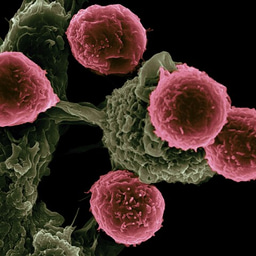

“It was a fact of life that there was no crueller master than an ex-slave”(Robert Harris, “Pompeii”).
Bullying is a fact of life at school. And it’s almost equally accepted that those who are bullied are likely to go on to become bullies themselves.
At school however, bullying is not tolerated – it’s censured from on high. No matter how prevalent, pervasive, or pernicious, there is never any suggestion that this is officially sanctioned behaviour that the principal and teachers are endorsing.
In the workplace though – and this includes not just science but just about every profession going – things can be a little different. If the person at the top of a hierarchy is a bully, then not only will everyone underneath them suffer in the same way as any schoolyard victim would, but there becomes a sense that this is “how things are here”.
The behaviour is endorsed. And then it gets replicated.
Science is no different. Group leaders are generally given considerable, sometimes almost unlimited, autonomy in how they run their groups. Benevolent, indifferent, or bullying – all will be tolerated at an institutional level, and this makes it possible for some rather unsavoury leadership styles to be practiced unchecked. This can run all the way from overly controlling to outright exploitative, with young scientists occasionally viewed as a disposable resource that can be repeatedly replenished no matter how many students or postdocs quit, burn out, or are squeezed dry.
As in all biological systems, you get what you select for. Even if a group is known to be highly exploitative and run like a First World War infantry battalion, there will probably still be a steady stream of applicants – and especially so if that group is seen to be scientifically productive. Regardless of whether or not the existing members are allowed to disclose what conditions are like, you’ll often find new arrivals thinking that “All these bad stories might be true, but it won’t happen to me”.
But it does, of course. It happens to everyone. And it simply becomes a lottery as to whether that smart, talented, hard-working person becomes a quitter, a burn-out case, an extracted husk, or the one-in-five/ten/twenty/whatever who leaves with a first-author paper good enough to catalyse the next step in their career. Pretty much like the odds of dodging shellfire in the trenches.
Leaving aside the issue of whether or not this is an appropriate way to lead a group, the problem in a way is what happens next. The brain has a really remarkable ability to mitigate and rationalise past pain, and that one lucky scientist who gets to continue their academic career may well conclude that their survival is not due simply to good fortune. They may in fact, like many victims of workplace bullying, conclude instead that this is what made them the person they are today. It toughened them up, taught them a worthwhile lesson, was the reason that they ultimately profited. They may even sentimentalise it.
Worse, they may well conclude that this behaviour is what is required in order to be successful.
Because people in research groups, students especially, don’t necessarily have a sense of how things should be. They may well just look around and assume that this is how it is. Like dogs raised in a bad environment, they will learn and they will adapt, and they will propagate that behaviour when they move on. They will treat their future subordinates in the same manner that they have been treated, and they will generate a crop of fresh bullies in their turn.
People who are treated like slaves become the worst possible masters. But if you feel as though you’re being bullied, remember this – it does NOT have to be like this. Set yourself free, and find a lab that lets you thrive.
(Manumission, in ancient Rome, was the act of setting a slave free)
Originally published at Total Internal Reflection - here.





Join the FEBS Network today
Joining the FEBS Network’s molecular life sciences community enables you to access special content on the site, present your profile, 'follow' contributors, 'comment' on and 'like' content, post your own content, and set up a tailored email digest for updates.